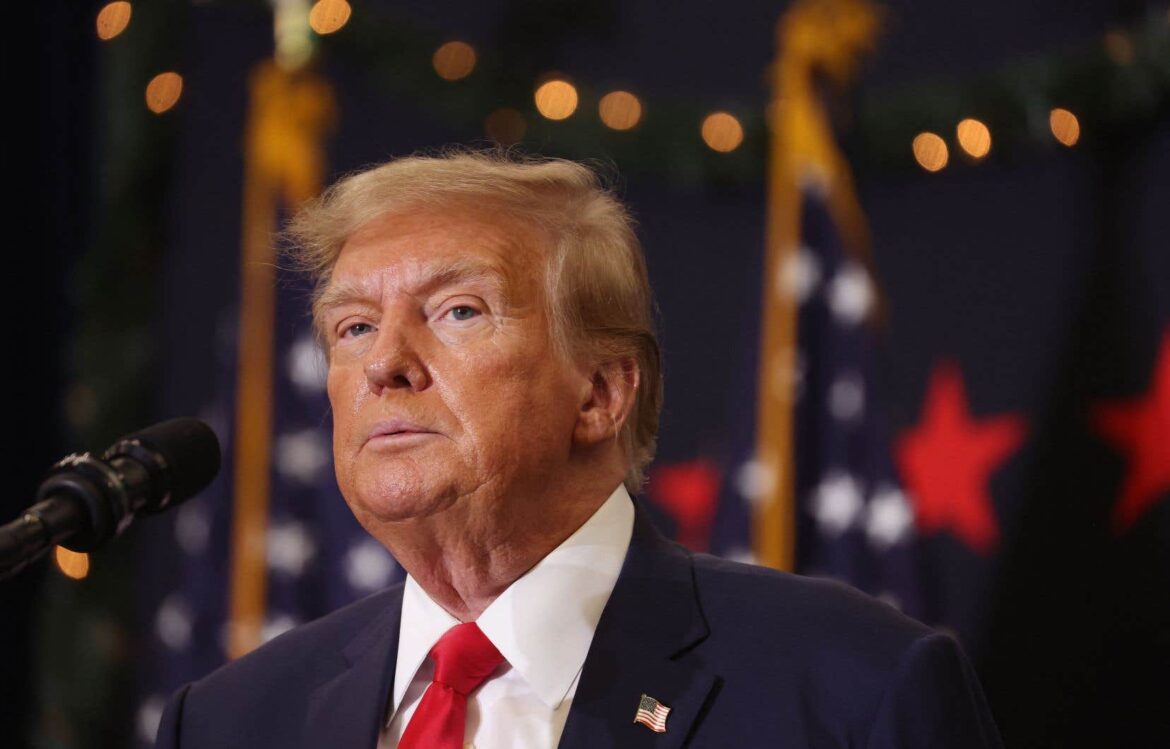Was Donald Trump protected by presidential immunity when he tried to overturn the results of the 2020 election? The American Supreme Court refused on Friday to rule urgently on this question, a boon for the Republican who hopes to be able to postpone the start of his trial.
The tempestuous billionaire, indicted in four criminal cases and candidate in the November 2024 election, must be tried from March 4 for his pressure during the last presidential election.
But his lawyers are trying by all means to shift the judicial calendar so that it does not coincide with that of the presidential election. The Republican primaries begin in January and could last until June.
“Of course I have the right to presidential immunity,” Donald Trump repeated again Friday on his Truth Social platform, assuring that it was his “right and duty” to act in the face of what he considers , without proof, to be a “stolen” election.
Arm wrestling around the calendar
His lawyers have thus, among other things, invoked the argument according to which Donald Trump enjoys “absolute immunity” for all the acts he committed while he was in the White House. And that he should not, for this reason, be prosecuted.
Judge Tanya Chutkan, who will preside over the proceedings of this federal trial, rejected a first request for immunity in early December, considering that no text protected a former president against criminal prosecution.
Donald Trump’s lawyers appealed this decision, asking an appeals court to rule on the subject. This additional stage, which will begin on January 9, could however take many weeks and risks, ultimately, postponing the start of the former president’s trial.
In mid-December, federal prosecutor Jack Smith appealed to the United States Supreme Court, asking the country’s highest court to rule directly on this issue, without waiting for the appeals court’s decision.
What the Supreme Court, with a conservative majority after having been largely overhauled by Donald Trump, therefore refused on Friday. To the satisfaction of the principal concerned, who said he was impatient to present his arguments to the court of appeal.
The Supreme Court has never explicitly said whether a former president has immunity from criminal prosecution.
Locally, similar attempts to invoke presidential immunity for Donald Trump have been rejected by lower court judges.
The case law is all the more vague as Donald Trump is the first former president of the United States to be criminally charged.
Three cases
In total, the Supreme Court dominated by conservatives, whose judgments are regularly criticized by Democrats, could be called upon to decide three times this year on the fate of Donald Trump.
In addition to this question of presidential immunity, the American legal temple has agreed to rule on a law used in prosecutions against the former president and hundreds of his rampaging supporters who attacked the United States Congress on January 6 2021.
There is also the question of Colorado: a court declared Donald Trump ineligible for the Republican primaries in this American state because of his actions during the assault on the Capitol. The former president cries “election interference” and calls on the United States Supreme Court to agree with him.
Election, trial, election, trial: the Republican billionaire is preparing to experience an extraordinary year in every way, punctuated by comings and goings between the courts and the campaign platforms.
Neither a stint in prison nor a return to the White House can currently be ruled out for the Republican – a completely extraordinary situation on which he has capitalized.
With each twist and turn in his sprawling legal saga, Donald Trump has so far raised crazy sums of money and climbed in the polls, thanks to his supporters, convinced that he is the victim of a political cabal.
He did not wait to campaign on the Supreme Court decision: “At this crucial moment, I ask for your support,” he wrote to his supporters in an email calling for donations .



